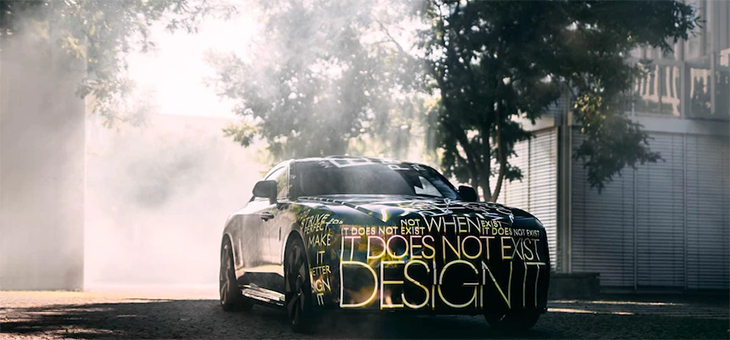Australia is becoming a “dumping ground” for more dangerous and polluting cars, one transport minister warns, as the federal government has not adopted international emissions standards.
More than 80 per cent of the global car market now follows ‘Euro 6’ vehicle emission standards, including Europe, the United States, Japan, Korea, China, India and Mexico.
But Australia has resisted signing up to the standards, which would require more stringent restrictions on pollutants in petrol, and require new cars to emit far less particulate matter than currently allowed.
Even if the government signed on today, it would be years before the country was ready.
Car manufacturers say that has made it difficult to sell their best vehicles in Australia, which require better quality fuel.
‘A dumping ground’ for less efficient, costly, polluting cars
In a submission to a federal parliamentary inquiry into road safety, ACT Transport Minister Chris Steel warned the refusal to adopt Euro 6 standards was not only bad for the environment, but also endangered road users.
“[It has] led to Australia becoming a dumping ground for manufacturers of less efficient, costly and polluting vehicles,” Mr Steel said.
“Vehicles which comply with the latest emissions standards also generally incorporate a range of modern safety features, so the increased uptake of these vehicles would deliver both environmental and safety benefits.”
In October last year, the Infrastructure Department examined the costs and benefits of Australia signing up to modern standards, and found there would be “significant benefits” to doing so.
The department said an estimated 620 Australians died in 2015 due to transport-related air pollution, equal to more than half the national road toll, and which cost the economy about $9.2 billion.
It also warned that the lag in adopting more stringent standards was leading to less advanced cars being available for Australia’s car market.
“Manufacturers have already expressed concerns that our vehicle emissions standards are making it increasingly difficult to convince their global parent companies that next generation engine technologies, such as hybrids and plug-in hybrids or vehicles fitted with advanced driver-assistance systems (ADAS) and intelligent transport systems (ITS), should be allocated to the Australian market,” the department wrote.
“This risk will increase in time.”
A spokesman for federal Transport Minister Barnaby Joyce said the government was currently considering whether to adopt Euro 6 standards.
“The government is currently undertaking a review to consider whether Australia should adopt the Euro 6 standards for light vehicles and Euro VI standards for heavy vehicles,” the spokesman said.
“Mr Steel’s assertion that the federal government has refused to implement the Euro VI standard in Australia is incorrect.”
Petrol problems block advanced cars from Australian market
One of the barriers to Australia’s adoption of stricter emissions standards is the country’s lack of quality petrol.
Australian petrols can have 15 times as much sulphur as the maximum regulated amount in other developed nations, as well as more aromatics such as benzene — making it the worst among OECD nations, according to the Infrastructure Department.
Manufacturers have said better quality petrols must be in place before they can meet Euro 6 standards in Australia.
And if those standards can’t be met, then manufacturers must revert to installing older technology or withdrawing cars from the market all together.
Car makers have also said government policy is one of the key reasons more affordable electric cars are not available in Australia.
The ACT Transport Minister has submitted that since the federal government has recently committed to improving fuel quality, now is the time for Australia to catch up.
“Consideration should be given to mandating at least Euro 6 standards for carbon dioxide emissions on new vehicles as soon as possible,” Mr Steel said.
“I also note that the European Commission is going even further planning for the introduction of Euro 7 standards by 2025.”
Refusal to sign on will shrink car market
Professor Danny Samson, an automotive industry analyst at the University of Melbourne, said local manufacturers once held back Australian standards, as their more “old-fashioned” technology caused inertia.
But with no local industry anymore, he said there was little excuse for Australia not to adopt the standards.
“Some of those excuses might have been partially reasonable when we had a domestic vehicle industry,” Professor Samson said.
“Now that we don’t … why haven’t we accelerated our standards and requirements along the lines of fuel efficiency and emissions that Europe is requiring?
“We should be importing cars that are going to be much more advanced.”
With only a small market, Professor Samson said manufacturers would be unlikely to make specialised cars to uniquely suit Australia, and instead the country would be left out.
And with many car makers going electric, Professor Samson said the country risked falling further behind.
“Ford, GM [General Motors], Mercedes and even Rolls Royce have now announced timetables to go fully electric, but our government is sitting on its hands,” he said.
Mr Steel noted Australian consumers had access to 31 electric vehicle models in 2020, while those in the UK had access to 130.
He pointed to it as one example of how consumers were being limited by policy inaction.
“Until the standards change, Australians will experience higher vehicle operating costs, poorer health outcomes and our transport will continue to drive our emissions up,” Mr Steel told the ABC.
Professor Samson said the timeline for adopting Euro 6 could be shortened if the government was committed.
“We could incentivise the changes that need to be done with fuel quality, and I think that it could definitely be done within five years, or even more aggressively than that.”
The federal government has agreed to implement better petrol quality standards from 2027, which are required before Euro 6 for light vehicles can be mandated in Australia.
 © 2020 Australian Broadcasting Corporation. All rights reserved.
© 2020 Australian Broadcasting Corporation. All rights reserved.
ABC Content Disclaimer

